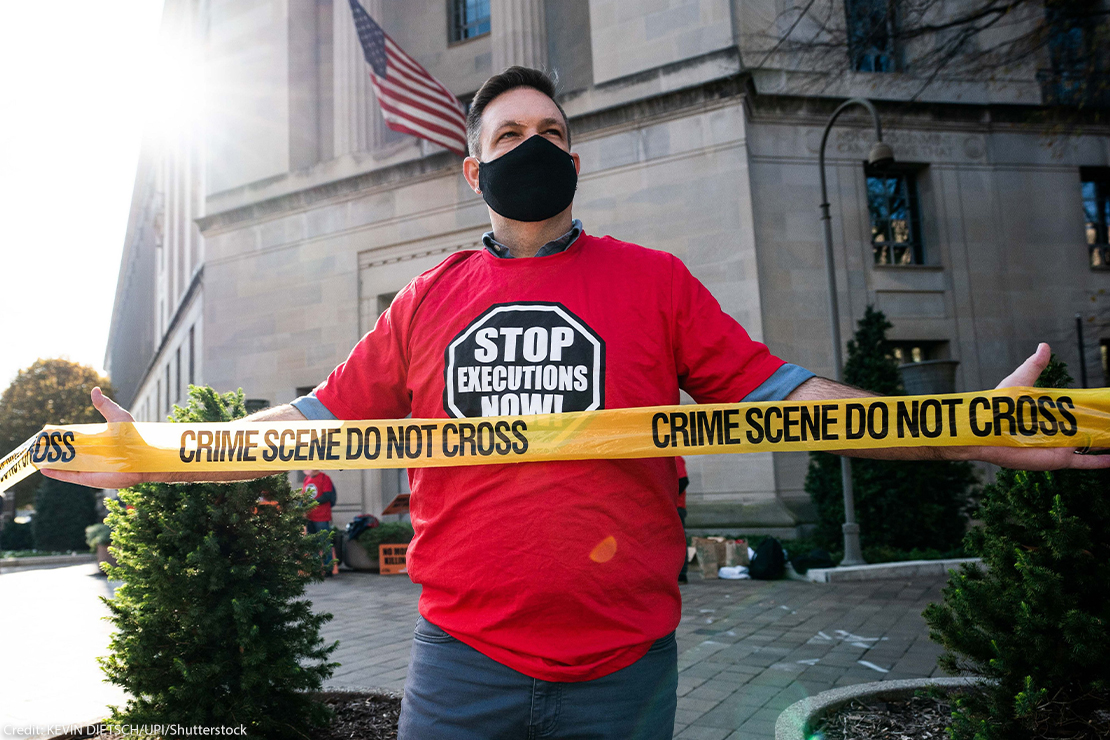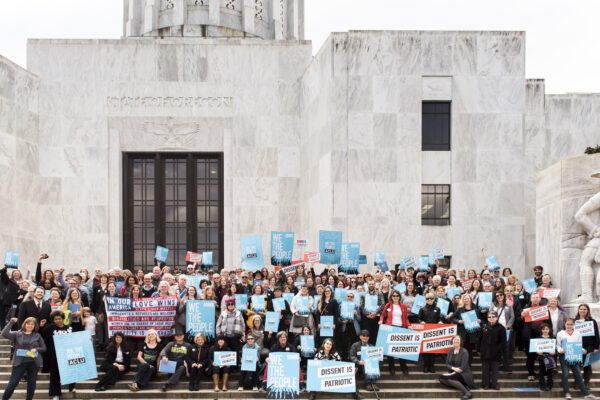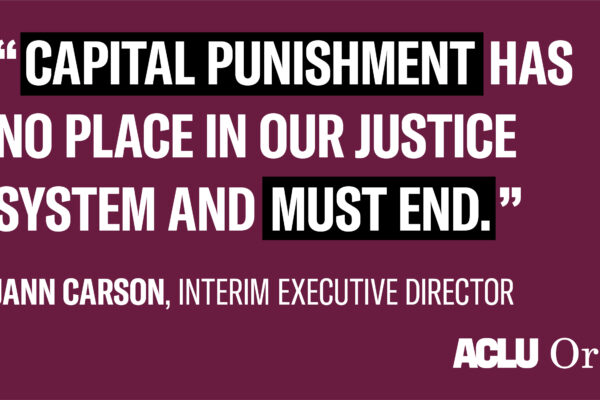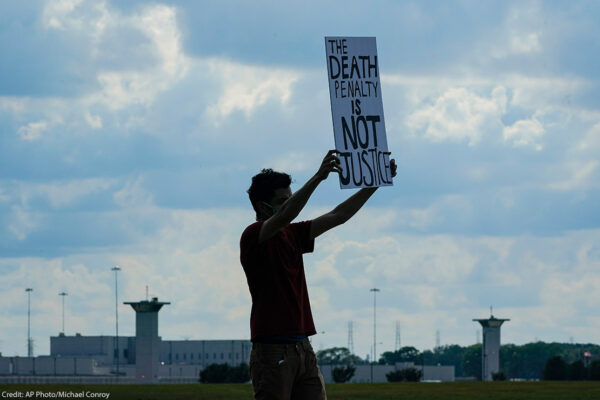In the 1920s and 30s, a stark white-on-black banner would sometimes appear in front of NAACP headquarters in Manhattan. It read simply, “A MAN WAS LYNCHED YESTERDAY.” The proliferating southern NAACP branches of the time would relay information about lynchings back to New York, where Walter White’s NAACP would broadcast the news by hanging out the banner.
The death penalty is out of step with the fundamental values of our democratic system: it is barbaric, inequitable, and unjust.
In 2023, the ACLU, inspired by that broadcast, initiated a digital campaign to memorialize the lives of death-sentenced individuals at the time of execution, and called for an end to the death penalty. In 12 months, we memorialized 20 people executed by five states: Missouri, Oklahoma, Florida, Texas, and Alabama. The series illustrated the full range of systemic flaws of capital punishment in America: the targeting of people of color, low-income people, people with intellectual disability and mental illness, and other marginalized persons; the rampant police and prosecution dishonesty and demagoguery; the grossly underfunded and incompetent representation; the torturous execution methods; and the slaughter of innocent people.
These executions stood against the backdrop of the ACLU’s work around the country to bring the death penalty’s flaws to light and hasten its abolition. We filed litigation in Florida challenging the discriminatory effects of “death qualification,” a jury selection practice that disproportionately excludes people of color and those with religious objections to the death penalty. We presented evidence in Kansas at a hearing in support of a broad challenge to the constitutionality of the death penalty. In North Carolina, we prepared for a hearing seeking relief under the state’s Racial Justice Act, or RJA, and we launched and litigated similar challenges in California under that state’s newly enacted RJA.
Our work this year will be guided by our twin goals of preventing executions and, ultimately, abolishing capital punishment.
We continued representing individual clients who received shockingly ineffective assistance at trials marked by discriminatory jury selection, junk science, and prosecutorial misconduct. Throughout the year, we drafted or joined amicus briefs on issues that included potentially botched executions in Arizona, the State’s suppression of evidence of a capital defendant’s innocence in Louisiana, and an illegal non-public trial in Kentucky.
We will start 2024 with a major hearing under the North Carolina RJA, and then continue our attack on racism in capital cases by seeking relief under California’s Racial Justice Act on behalf of clients facing capital trials in Riverside County, the nation’s heaviest user of the death penalty. We will be the first to challenge on direct appeal Florida’s recent legislation allowing non-unanimous juries to recommend death sentences — a practice that disproportionately silences the voices of people of color — on behalf of our client, Michael Jackson, in the Florida Supreme Court. And our practice of filing friend-of-the-court briefs before the Supreme Court in critical capital cases will continue.
Our work this year will be guided by our twin goals of preventing executions and, ultimately, abolishing capital punishment. The death penalty is out of step with the fundamental values of our democratic system: it is barbaric, inequitable, and unjust. The time has come for America to end this failed experiment.





